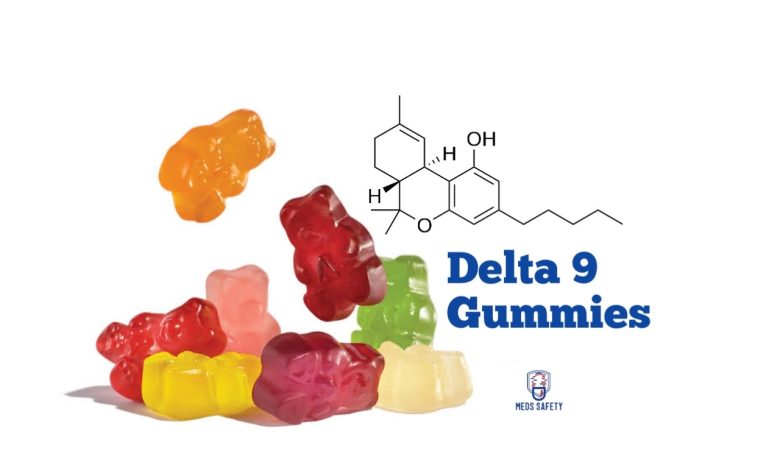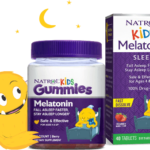Delta 9 Gummies Benefits and Side Effects

In recent years, the cannabis market has experienced a surge in popularity, with various products entering the mainstream. One such product gaining attention is Delta-9 gummies, a form of edible infused with Delta-9-tetrahydrocannabinol (Delta-9 THC), the psychoactive compound found in marijuana.
As these gummies become more widely available, questions about their safety and potential risks have emerged. This article provides a comprehensive guide to help you understand the benefits, risks, and safety aspects of Delta-9 gummies.
What is Delta-9 THC?
Delta-9 THC is one of over 100 cannabinoids found in the cannabis plant. It is known for its psychoactive effects, often associated with the feeling of being “high.” In traditional marijuana, Delta-9 THC is the primary compound responsible for the euphoric experience users seek. However, Delta-9 THC is just one of many cannabinoids, and its effects can vary depending on factors such as dosage, individual tolerance, and consumption method.
Delta-9 gummies, infused with Delta-9-tetrahydrocannabinol (Delta-9 THC), have shown promise in various therapeutic applications. The compound’s analgesic properties make it effective in managing chronic pain, offering relief to individuals suffering from conditions such as neuropathy or arthritis. Delta-9 THC has also demonstrated antiemetic effects, providing relief for patients undergoing chemotherapy and experiencing nausea and vomiting. Additionally, its anxiolytic properties may offer benefits for individuals dealing with anxiety disorders. Emerging research suggests potential applications in improving sleep quality, reducing inflammation, and aiding in appetite stimulation, making Delta-9 gummies a versatile option for those seeking alternative approaches to address a range of health concerns. However, it is crucial to approach therapeutic use under the guidance of healthcare professionals to ensure safe and effective outcomes.
The legal status of Delta-9 THC varies across different jurisdictions. In some places, marijuana and its derivatives remain illegal, while in others, certain forms may be legal for medical or recreational use. It’s crucial to be aware of the legal landscape in your location before considering the use of Delta-9 gummies.
Dosage and Potency
One of the key factors influencing the safety of Delta-9 gummies is the dosage and potency of the product. Gummies come in various concentrations, with labels indicating the amount of Delta-9 THC per serving. It is essential to start with a low dosage, especially for individuals new to cannabis products, to gauge their sensitivity and response.
Overconsumption of Delta-9 THC can lead to adverse effects, such as anxiety, paranoia, and impaired cognitive function. Manufacturers typically provide guidelines on recommended serving sizes, and users should adhere to these instructions to minimize the risk of negative experiences.
Quality and Regulation
The safety of Delta-9 gummies is closely tied to the quality of the product and the regulations governing its production. Reputable manufacturers follow strict quality control measures, including third-party testing to ensure accurate labeling and the absence of contaminants.
Before purchasing Delta-9 gummies, consumers should research the manufacturer’s reputation, read customer reviews, and verify that the product has undergone independent testing. Regulations around cannabis products vary, and consumers should choose products from regions where the industry is well-regulated to minimize potential risks.
Potential Health Risks
While Delta-9 THC has therapeutic potential, it is essential to acknowledge the potential health risks associated with its consumption. Some individuals may be more susceptible to adverse effects, particularly those with a history of mental health issues or certain medical conditions. Pregnant and breastfeeding individuals are generally advised to avoid Delta-9 THC due to potential impacts on fetal development.
Research suggests a link between cannabis use, particularly in high doses, and an increased risk of mental health issues such as anxiety and psychosis. However, the specific relationship between Delta-9 THC and mental health is complex, and more research is needed to establish a clear understanding of these connections.
Interactions with Medications
Another consideration for the safety of Delta-9 gummies is their potential interactions with medications. Delta-9 THC can affect the metabolism of certain drugs by interacting with the cytochrome P450 enzymes in the liver. This interaction can lead to changes in the way medications are processed, potentially affecting their efficacy or increasing the risk of side effects.
Individuals taking medications should consult with their healthcare providers before using Delta-9 gummies or any other cannabis products. Healthcare professionals can provide personalized advice based on an individual’s medical history and current medications, helping to mitigate potential risks.
Short-Term vs. Long-Term Effects
The safety profile of Delta-9 gummies also depends on whether the focus is on short-term or long-term effects. Short-term effects of Delta-9 THC may include altered perception, impaired coordination, and changes in mood. These effects are typically temporary and wear off as the compound is metabolized by the body.
Long-term use of Delta-9 THC, especially in high doses, raises concerns about potential cognitive impairments and addiction. Chronic use of cannabis has been associated with cognitive deficits, particularly in areas such as attention, memory, and learning. However, the extent and reversibility of these effects depend on factors such as the duration and intensity of use.
Potential for Dependence and Addiction
While Delta-9 THC is not considered physically addictive in the same way as substances like opioids, there is a potential for psychological dependence. Some individuals may develop a habit of relying on Delta-9 THC to cope with stress or other challenges, leading to a pattern of regular use.
It’s crucial for users to monitor their relationship with Delta-9 gummies and be mindful of any signs of dependence. Seeking professional help is advisable for those who find it challenging to cut back on use or experience negative consequences as a result of their consumption.
Risk of Impaired Driving
Impaired driving is a significant concern associated with the use of Delta-9 THC, as it can impair coordination, reaction time, and decision-making abilities. Just like alcohol, cannabis can affect a person’s ability to operate a vehicle safely. Many jurisdictions have established legal limits for THC in the bloodstream for drivers, and individuals should be aware of and adhere to these regulations.
Users of Delta-9 gummies should exercise caution and refrain from driving or operating heavy machinery while under the influence. It’s essential to plan for alternative transportation methods if there is any uncertainty about impairment.
Safer Consumption Methods
For individuals concerned about the safety of Delta-9 gummies, alternative consumption methods may be worth considering. Vaporization, for example, allows for the inhalation of cannabinoids without the harmful byproducts associated with smoking. Additionally, tinctures and sublingual oils provide a more controlled way to administer Delta-9 THC, allowing users to titrate their dosage more precisely.
These alternative methods offer faster onset times compared to edibles, which can take longer to produce effects due to the digestive process. By exploring different consumption options, individuals can find a method that aligns with their preferences and comfort levels.
Considerations for Specific Populations
Certain populations may need to exercise extra caution when it comes to Delta-9 gummies. Pregnant individuals, for instance, should be aware of potential risks to fetal development and generally avoid Delta-9 THC during pregnancy. Breastfeeding individuals should also be cautious, as cannabinoids can be transmitted through breast milk.
Individuals with a history of mental health issues, particularly anxiety or psychosis, should consult with a healthcare professional before using Delta-9 gummies. Cannabis has been associated with an increased risk of exacerbating mental health symptoms in susceptible individuals.
Conclusion
The safety of Delta-9 gummies depends on various factors, including dosage, quality, individual health, and regulatory oversight. While Delta-9 THC has therapeutic potential, it is not without risks, and users should approach its consumption with caution and awareness.
To enhance safety, individuals should choose products from reputable manufacturers, adhere to recommended dosages, and be aware of potential interactions with medications. Consulting with healthcare professionals, especially for those with underlying health conditions, can provide personalized guidance on the use of Delta-9 gummies.
Ultimately, responsible and informed use is key to maximizing the potential benefits of Delta-9 gummies while minimizing potential risks. As the cannabis industry continues to evolve, ongoing research and education will contribute to a better understanding of the safety profile





